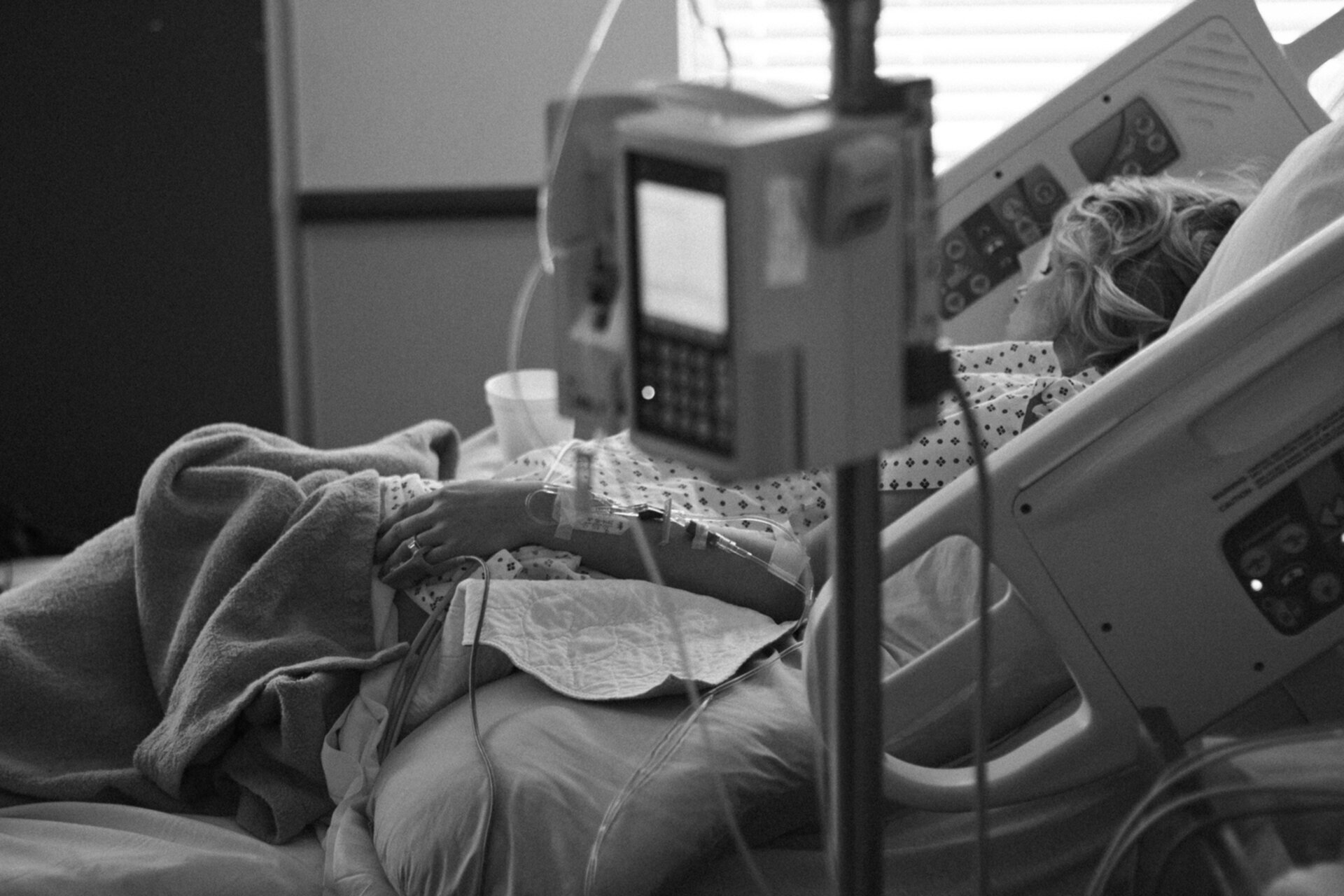
Dying Matters. Could the COVID crisis improve end of life care for the marginalised?
16/07/2021
As the global pandemic upended everyday life, we questioned what it meant to be human. How we live, work, play and indeed, how we die. In every culture and faith a death is marked with custom and comforting gestures. We navigate grief surrounded by loved ones. A lack of closure results from a lockdown death, especially when restrictions were at their height. Many died with important things left unsaid, and their sparsely attended funerals were void of a warm embrace or celebration.

A Crisis of Connection
In my experience however, these tragic circumstances are not unique to the pandemic. When a person battles a lifelong addiction, any loved ones there until the end can feel similarly isolated, and our service users struggle to get the end of life care they deserve. Dying Matters Awareness Week, running from 10 – 16 May, is a chance for partners, organisations and individuals to open up the conversation around death, dying and bereavement.
A Difficult State of Affairs
Supporting a family member with alcoholism, drug addiction or negative mental health can be incredibly challenging. And the reality for people who have used our services is that they often face their death alone, or with few people to mourn their passing. The stigma surrounding addiction creates a life blemished with isolation and shame. That stigma is hard for our service users to bear, but it is also a trauma for any family they have.
At Kaleidoscope we often work with people who are very ill, and unique challenges affect people who use drugs and alcohol at the end of life. They may face barriers accessing health services that prohibit drug or alcohol use. They may fear being judged by health professionals. They may have additional health problems caused by drugs or alcohol and few family and friends to support them. Often people use drugs to cope with mental trauma and physical pain, but when receiving end of life care the substance a person relies on can interact with their medicines, making symptoms more difficult to manage. All of these factors can make leaving this world a particularly traumatic experience for the people we support.
A lifelong addiction to alcohol can cause health problems such as sclerosis of the liver, and alcohol abuse increases a person’s risk of cancer, heart disease and stroke. The depression associated with alcohol can cause a person to feel angry and despondent if they believe their drinking caused or contributed to their diagnosis. In fact many people in our community struggle even to get a diagnosis. I have known two service users with brain tumours that went undetected, their ailments dismissed as symptoms of their addiction. Similarly, people with serious mental ill health die on average 10 to 17 years earlier due to stigma ,and their illness impacting their ability to access help and care. It can be a uphill struggle for a person feeling confused, anxious and unwell, to travel for tests and attend clinics in unfamiliar settings. If they manage to attend, regrettably their symptoms are more easily dismissed. Stigma means health issues go unaddressed until it’s too late.
Death without discrimination
Our service users struggle to get the end of life care they deserve, when their housing is insecure or they are seen as too chaotic for hospices and traditional palliative care settings, they are too often left to die engaging only with their drug and alcohol service. Many such services are also focused on recovery, and this is not helpful when someone’s life expectancy is limited.
As we continue to see record drug deaths in the UK, the need for accessible treatment, rapid prescribing and diverse treatment options is clear. Efforts to reduce fatal overdose and pilot peer-led projects that make Naloxone more widely distributed will surely make a difference and create stronger alliances with people who take drugs. Still, I am not so idealistic to believe we can ever prevent drugs and alcohol contributing to lives being lost too soon, and we will always support people with life debilitating conditions, helping them to achieve the best quality of life possible.
Palliative care for people who use drugs
End of life care is a human right and we need to work with those we support to manage those last precious months. We must understand the complexity and multiplicity of their needs, balancing their desire to remedy complex relationships with the wellbeing of their family. This is no easy task. We must consider financial and housing support needs, and the impacts of social isolation, stress and trauma. It’s not being afraid to talk openly about their drug and alcohol use and determine how best to keep them comfortable, creating a safe and supportive environment they can feel at peace in. The role is not to lead but to listen, and enact as much as we can guided by their wishes. A good death matters and we mustn’t shy away from these conversations with our service users. We need them to know their life is worthy of celebration, and they will not simply be forgotten.
Death is a unifying factor that crosses every creed, class and background. It awaits us all and we will all suffer the loss of a loved one. I hope that the current crisis reinforces just how critical a dignified death is, and what good palliative care looks like for the most marginalised in our society.
Useful resources
- For Professionals
Marie Curie: Caring for someone with substance use problems at end of life.
Good Practice Guide: Supporting People with Substance Use Problems at the end of life.
- For Family and Friends:
Contact Kaleidoscope here to access family and friends support in your area

Martin Blakebrough
Kaleidoscope CEO
Share



